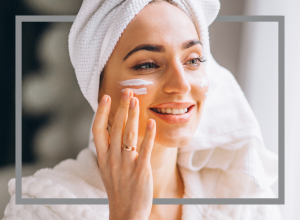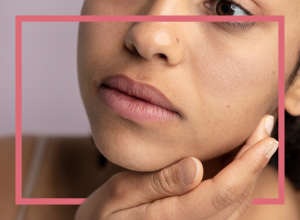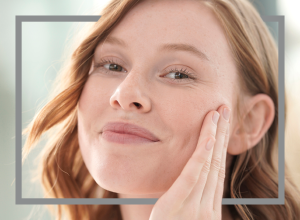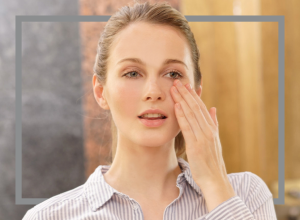There’s something you need to do quickly and time is somehow running out – who hasn’t experienced this situation? Things that are left undone or postponed often increase the pressure even further. And in the end, the stress manifests itself in various ways, including in the appearance of the skin, in feeling unwell or in a lack of concentration.
It usually starts quite unnoticed. At first, something remains undone, this is not a problem at first and is simply done later or on another day. But it is not uncommon for other unfinished tasks to follow, and then it becomes problematic.
But dissatisfaction at work or in a relationship can also lead to stress. According to statistics, 50% of employees are dissatisfied in their job and 47% of German employees (source: study) regularly suffer from symptoms such as exhaustion, sleep disorders, neck pain or headaches. A constant feeling of dissatisfaction can also be the basis of stress. If this is short-term, it is still unproblematic for the body, but a constant feeling of being overwhelmed or rushed can be very harmful. and can manifest itself in a wide variety of ways, including in the appearance of the skin: Stress and its (skin) symptoms provides an insight into the topic.
We always talk about stress, but what exactly does stress actually mean?
Stress is triggered by a wide variety of factors (source: gesundheitsmanagment24), e.g. psychological stimuli such as excessive demands or anger at work, deadline pressure, loss of a loved one or problems in a relationship.
Stress means excessive demands on the body or a discrepancy between available resources and the actual requirements or personal possibilities. The body mobilizes all its reserves in order to cope with the problem situations. The body is in a permanent active state, consuming a lot of energy. This often results in deficiency symptoms or externally visible skin problems.
Possible (skin) symptoms due to stress
When stress gets under the skin and it reacts with various irritations or irritations, this can have a wide variety of manifestations, depending on the type of stress that is the cause. Stress and skin symptoms have an influence on each other:
Infections
Our immune system protects us from external influences every day. Under stress, however, the skin’s protective mechanisms are disrupted. This often leads to overactivity, which requires a lot of energy. Vitamins and minerals are essential here, e.g. a vitamin A deficiency can lead to an increase in infections. A lack of vitamin B6 often manifests itself in cracked lips. In general, it can be said that if the immune system is not intact, viruses and bacteria have an easier time, which can lead to lip herpes infections, for example.
The best protection is provided by products that offer the appropriate protective effect and intensive care.
Blemished skin
We often run our hands over our face when we are nervous. In doing so, we always have bacteria and germs on our fingers, which we spread to often sensitive areas of skin. The result is often blemished skin.
People under stress often also tend to eat unhealthy food, smoke and have other negative habits. These also promote blemished skin. The body itself reacts to stress with an increased release of stress hormones such as adrenaline and noradrenaline, which are known to promote inflammatory processes in the skin and inflamed skin areas. Prolonged stress also causes more cortisol to be produced, a hormone that can promote acne. An important factor here is to always use the right skin care that is gentle and supports the skin’s protective barrier.
Skin diseases
Even though it is often genetically predisposed, the interaction between skin and psyche has been proven several times by studies. Stress can exacerbate skin diseases such as psoriasis or neurodermatitis. In most cases, those affected also have very dry skin, which in turn disrupts the skin’s protective function and leads to further complications. It is important to use itch-relieving, moisturizing and protective skin care, such as skinicer products.
Restlessness and sleep problems
Inner restlessness, irritability or sleep problems are often the result of too much stress. The body and mind lack the necessary rest, as periods of tension should always be followed by a period of relaxation. If this time out is missing, our defenses against pathogens are weakened and infectious agents can attack more quickly and easily.
Steps to improve (skin) health
If you want to do something good for your skin in stressful situations, you can do this by making small changes:
- Create a balance with appropriate rest periods and fixed sleeping times at stressful times. Constant availability can also be stressful, but fixed structures, workflows and time slots can be very helpful.
- A healthy diet is also important and should not be underestimated, as an unbalanced diet can also promote skin problems. Missing vitamins and minerals, important sources of energy, are needed all the more in stressful phases. And of course, always drink enough, because water is an important element of a healthy diet.
- Healthy and smooth skin is always a sign of a healthy organism. Exercise is essential here, as sporting activities in particular release hormones that can help to cope with stress. Relaxation exercises and sport are a good tip for doing something good for the body and soul.
- In the event of dissatisfaction or stress at work, expectations should be realistically reviewed and the work situation possibly changed. There is no shame in asking for help once in a while.
Did you like the article: Stress and its (skin) symptoms? You can find more tips and advice to read in our expert tips on ocean-pharma.de
Image source: Tero Vesalainen / shutterstock.com






